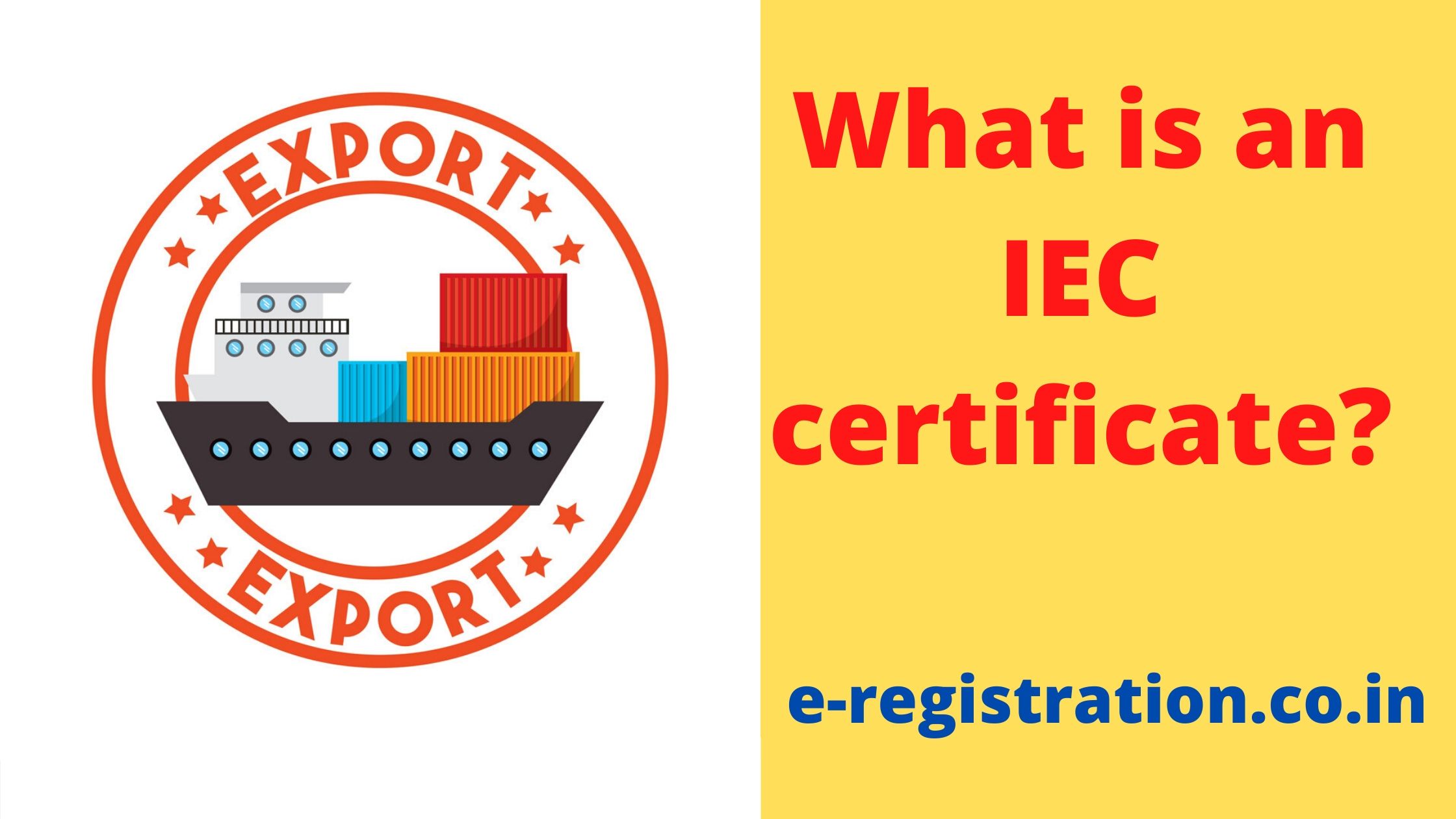
What is an IEC certificate?
Import-export code certificate is also known as an import export license. An import export code is a 10 digit identification number required by all persons who want to import or export in/from India. IEC code number is generated by the Directorate General of Foreign Trade, Ministry of Commerce and Industries, Government of India. It can only be generated by following these steps:
Stage 1: First, you have to set up an application structure in the predefined design – Aayaat Niryaat Form no. 2A organization and document it with the regional office of DGFT.
Stage 2: Besides that, you have to set up the necessary records for your identity and address confirmation with your bank subtleties and the declaration in regard to ANF2A.
Stage 3: Upon completion of your application form, you must register with DGFT via DSC (Advanced Mark Declaration) and pay the IEC application fee required.
Stage 4: At long last, when your application is affirmed then you would get the IEC Code in soft copy from the administration.
Documents needed for IEC Certificate
- Proprietorship:
- PAN Card, Details of individual (address, pin code, father’s name, father’s name)
- Details of current bank account
- Bank certificate attested by banker
- Passport size photographs (4 people)
- Phone and email id
- Details of exporter signifying his type of business
- Date of business creation as per PAN card.
- Partnership and Private Ltd and Ltd:
- Company’s PAN Card
- Details of partners
- List of directors details
- Partnership deed
- Memorandum of association
- Bank certificate attested by the banker
- Current account
- Photographs of signing authority (at least 4)
- Phone number and e-mail
- Details of exporter signifying his type of business
- Date of formation as per deed
- Date of formation as per registrar of companies
Bank details
These categories are exempted from getting an Import Export Code
- Importers covered by Clause 3 of the International Trade Act 1993 (In some cases, exemption from implementation of the Regulations).
- Ministries of State or Central Government.
- Individuals who import or export products for personal use;
- Persons importing / exporting goods from / to Nepal issued a single consignment not exceeding the Indian Rs.25, 000 with the CIF amount. Person import/export goods from / to Myanmar border but the CIF value does not exceed 25,000 Indian rupees.
Benefits of IEC Certificate
- Development of Business
- Giving advantages
- No Filling of profits
- Simple Preparing
- No requirement for restoration
IEC helps you in taking your administrations or item to the worldwide market and develop your organizations.
Organizations could profit a few advantages of their imports/sends out from the DGFT, Fare Advancement Committee, Customs, and so on., based on their IEC enrollment.
IEC doesn't require the documenting of any profits. When dispensed, there isn't any prerequisite to follow such procedures for supporting its legitimacy. In any event, to send out exchanges, there isn't any prerequisite for recording any profits with DGFT.
It is very quick to obtain IEC code from the DGFT within 10 to 15 days after the application has been submitted. There's no need to offer any fare or import confirmation to get IEC code.
IEC code is successful for the lifetime of a substance and requires no restoration. After it is gotten, it could be utilized by a substance against all fare and import exchanges.
Frequently Asked Questions on IEC certificate
- What is the full form of the IEC Certificate?
- Is it necessary to have an IEC license?
- Who issues the IEC license in India?
Import Export Code (IEC) Certificate.
Yes, any business that deals with export goods, for this purpose they need to have an export license.
The IEC license is issued by DGFT or the Directorate General of Foreign Trade.
Written by Gazal Gupta
Other Related Latest Post
- RENEW DIGITAL SIGNATURE CERTIFICATE ONLINE
- Renew Trademark Registration Online In India
- Trademark Registration Online in India
- ISO CERTIFICATION ONLINE
- DIGITAL SIGNATURE CERTIFICATE ONLINE
- LLP Company Registration in India

